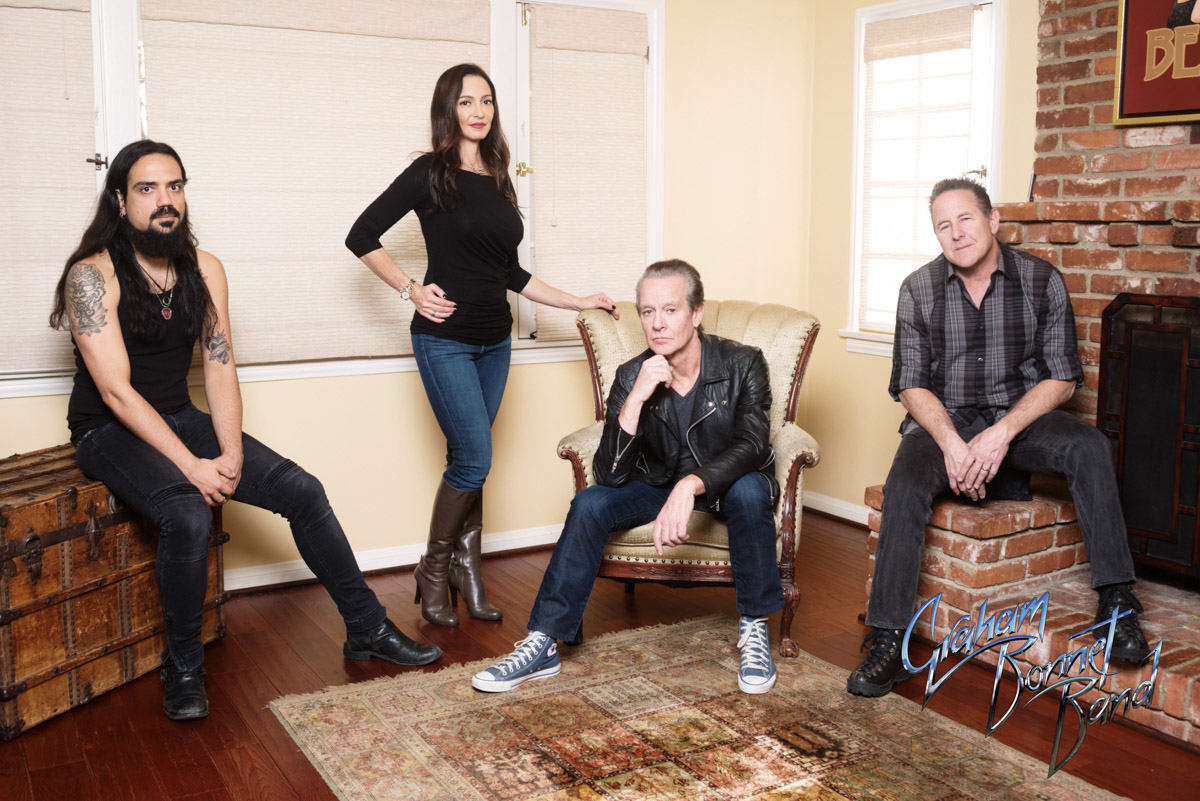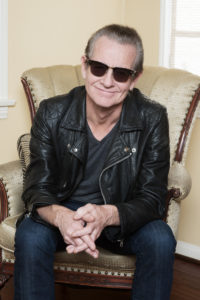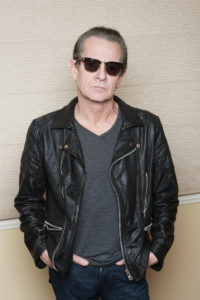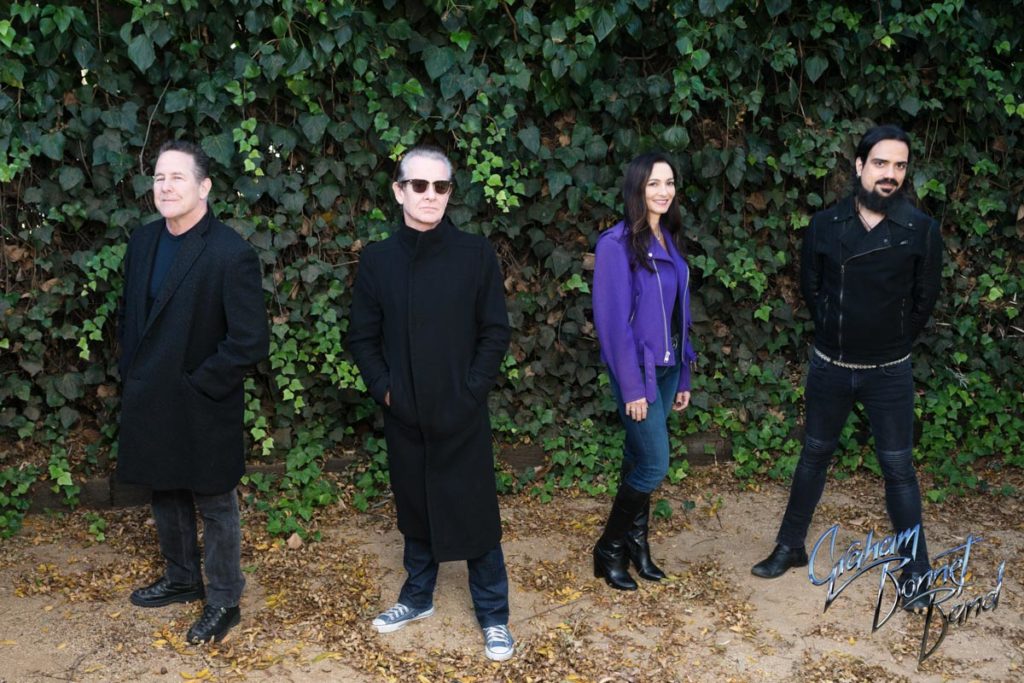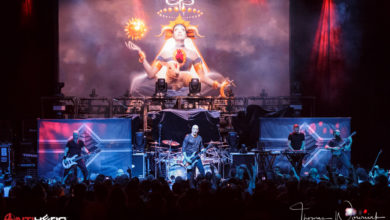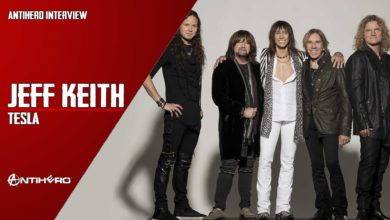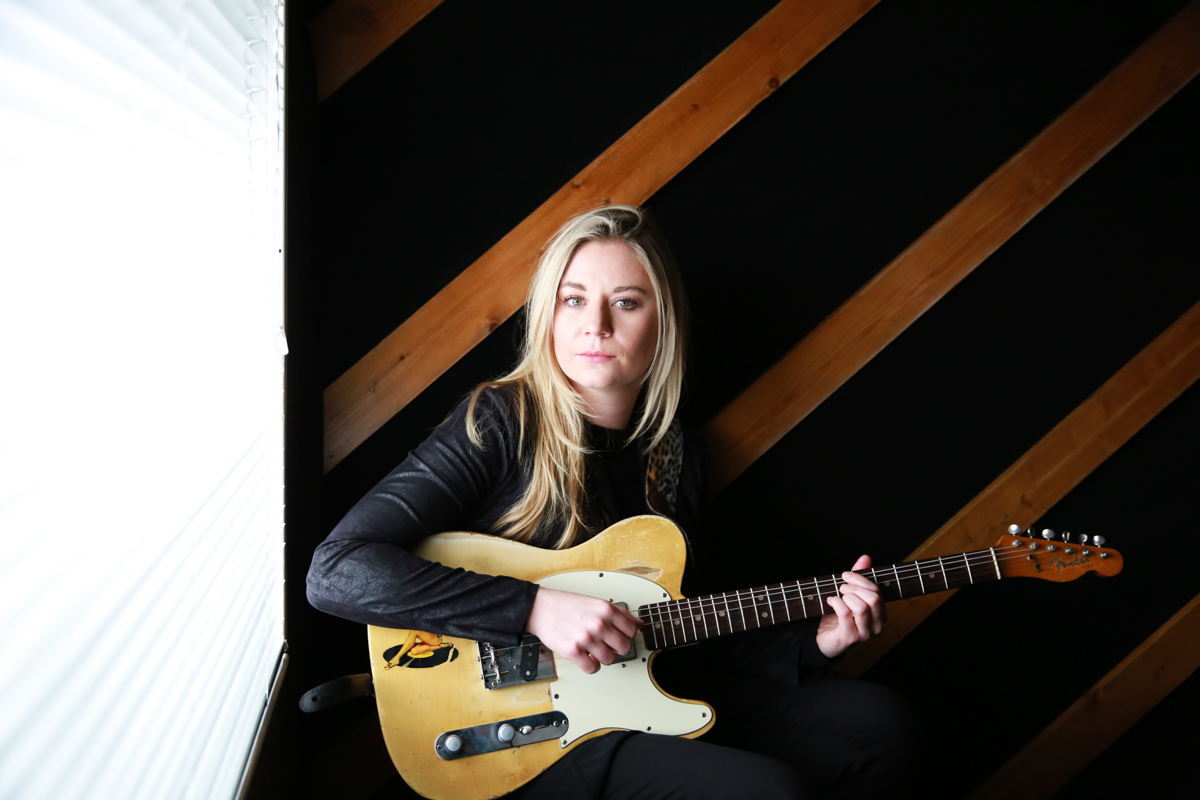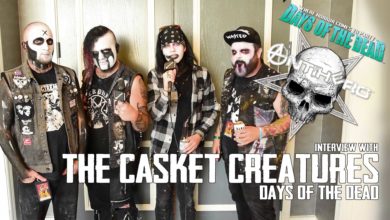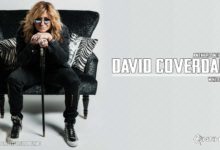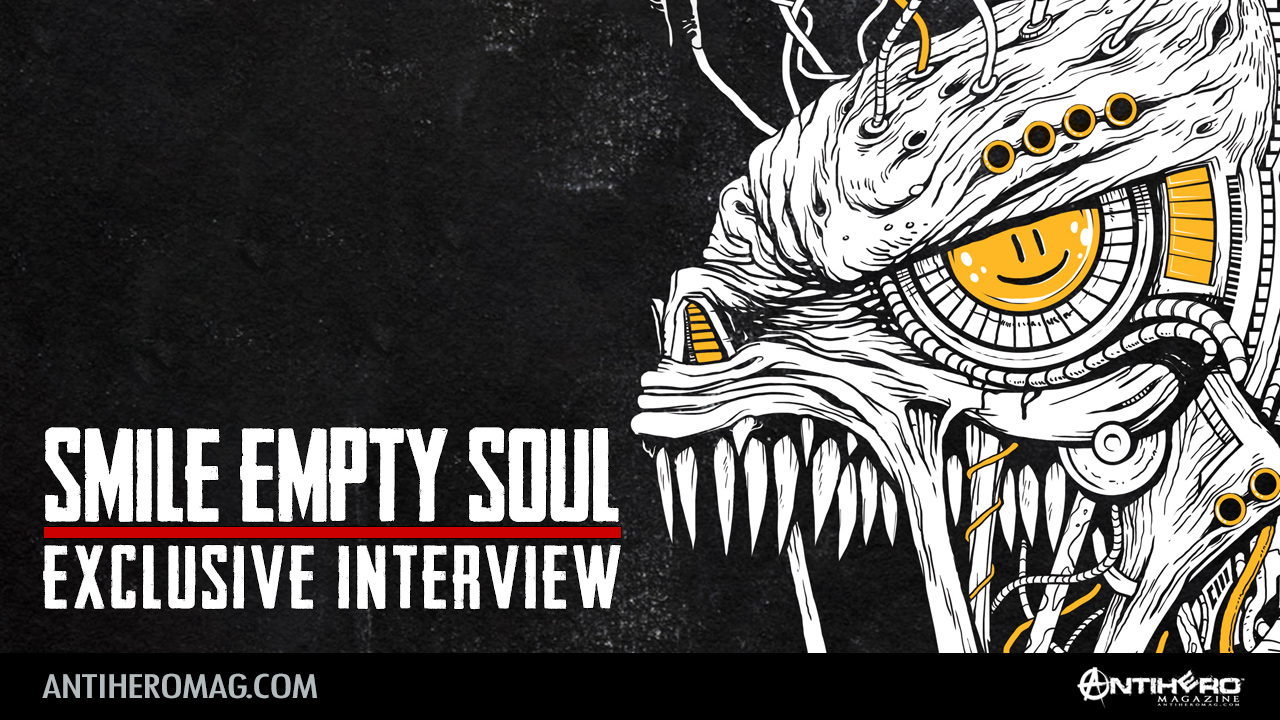Interview with GRAHAM BONNET
(The Graham Bonnet Band, Rainbow, Michael Schenker Group, Alcatrazz)
Interview by Mark Dean
Antihero Magazine’s senior music journalist, Mark Dean, spoke to legendary frontman, Graham Bonnet, about touring, the music industry today, and much more.
[separator style=”line” /]
The UK tour is quite an extensive one with very few breaks or days off in between shows. How do you survive physically, during consecutive nights?
With great difficulty, but it’s going pretty well. We have to try and sleep when we can, but at the moment, it’s pretty much a rush job. We’re in and out. Back to the hotel. Back here again. Back to the gig. It’s been very hard and a lack of sleep is taking its toll a little bit.
It’s a lot. Putting a strain, a physical strain on your voice. When you’re doing show after show, after show, after show without a break.
Yeah, and on the ears, I think.
There was a show on the tour in Skegness, which has a little history for you personally. Was that your first return in some time?
Yeah, well I was born there. I left there in 1968. I moved to London then. We used to play in “Skeggie” all the time – Skegness all the time, with my band. This would be about 49 years since I’ve been back there and actually played. No one ever plays there because it’s just this small seaside town. Nobody ever plays there and summertime is when everything happens, like Black Ball. Those holiday kind of, seaside places. It was wintertime, and I thought it would be nice to ask my friends along, school friends, and have like a reunion with a small audience. That kind of thing…my family. It was really good. It was great. It was really, really nice to see everybody.
I think actually I interviewed you before, just before you did the Catch the Rainbow tour. Just wondering, how does this tour differ from that tour?
This is playing with my own band. These guys, we’re going out there to actually let everybody see what the new band is. With the other people, it was great. It was kind of like I played with so many different bands in this country and overseas. It’s nice to have a unit that’s together, actually a real band, and are friends. These guys have been supporting. We put this together about 2 years ago. I wasn’t sure if everybody wanted to stay, but it’s worked out very well. We’re still doing the same songs. A bit of Rainbow. A bit of this. A bit of that. You know? It’s nice to have people I’m used to working with, instead of being the foreigner.
I think the last time you sort of indicated that. I asked you if you had new musical projects and you touched on the idea of some at that time, I think?
Yeah, I was. That changed. Me and Beth-Ami [Heavenstone] started to rehearse like an acoustic thing with a guy called Mario Parga. He’s a Spanish guitar player. He’s very good. He’s played on a few albums I’ve done. He can do all the “widdly widdly” stuff, and also very good at classical playing.
We started putting this together and then I think we realized that maybe we’d have to do the rock and roll stuff anyway. I can’t imagine doing a whole acoustic set. It was a good idea, but everybody said, “I don’t know how that’s going to work.” Anyway, so what happened was Mario couldn’t do it so it kind of fell apart.
I worked with Conrad Pesinato before with Beth-Ami. We played at the Whiskey one night, and did a jam thing. She suggested getting him along to play guitar. The three of us have been together for about two and a half years, or something like that. Putting this all together. We’re doing the rock stuff now.
In recent years, you rekindled the musical alliance of Michael Schenker. You played live with him. I just wondered if similarly, you touched on Richie? Has there been any contact with him over the years?
Like Michael? No, not really, but it was great to get back on stage with him again when we played in Japan and do a couple of songs from the album I recorded with him. It was really, really good. We parted on terrible terms unfortunately.
What about the thoughts, we touched on Richie [Blackmore], and this Rainbow, I use the term very loosely, because I’m a huge Rainbow fan? He didn’t contact you about that?
No, nothing at all. I knew he wouldn’t, because I think I know what he’s doing. He wants new people. Give somebody else a break, a chance to get out there and play. Whatever it may be. I think he may be testing the water a little bit. Maybe later on there will be, sort of, a reformation of Rainbow. I’m not sure how that’s going to work.
As a fan, even the name Rainbow, you obviously want people that will be associated with the band. Their history, you know?
I remember Joe Lynn Turner saying something about, “Well, I think he’ll want me to do it because of blah blah blah.” This is when Ronnie [Dio] was alive. I said, “If anyone’s going to reform Rainbow, it would be Ronnie Dio, et cetera, et cetera.” The original band. Ronnie died, and so when that happened I thought, “What’s going to happen now?” I sort of saw this coming. He would get complete unknown people and put them in the band, because economically it’s a good idea. (laughs)
All through your musical career, you played with many exceptional musicians – Blackmore, Malmsteen, Cozy Powell. Did you have any particular favorites from a technical musician? Can you pick anybody that’s been the best?
They’re all good, but in different ways. Cozy’s probably one of the best drummers I’ve ever played with. He’s an amazing guy. He’s one of my best friends, obviously. To find a guy who plays drums like that is very, very difficult. I think he would come close with Mark Zonder.
As far as guitar players go, they’re all different.
You have played with the greats.
Yeah! I’ve been lucky. Just very lucky. My hero is Don Airey, as a keyboard player. I think he’s amazing. He’s one of the best keyboard players in the world. It’s him, Rick Wakeman, and Jon Lord, who are like the best. I’m lucky enough to have him as a good friend, and the best friend. It’s not always just the guitar player. It’s the rest of the band too. Rodger Glover is a great bass player. I’ve always thought he was great. Chris Glenn, from Michael’s band, is a really great bass player too.
Any musicians that you would still like to work with, that you haven’t yet?
All of them. Yeah. If they ask me, yeah. I’ve been lucky to work with really great people, and I’m very serious about my music. I don’t want to be like other people. I like to go my own way and do different kinds of stuff.
That’s what they’re into, you know? Something a bit more inventive. Especially people like Steve Vai, who is very sort of…He takes a left turn when he should go straight ahead. He just sort of goes, “Well what about this? Oh that’s weird. Let’s do it.”
On your EP, you sort of reconnected and wrote a track with Russ Ballard. I just wondered, again, if he was somebody that you stayed in touch with over the years? Obviously, you worked expansively with him in the past.
Yeah, I mean, he’s a great musician. There’s no doubt about it. He can come up with songs just like, “What do you want?” The song he made for us, “My Kingdom Come,” it’s called. We spoke about it on the phone for a couple of days, or whatever. Then he would play me something over the phone and say, “What do you think about this bit? And blah, blah, blah.” Oh yeah! That’d be cool. Then we crafted it over the phone. It was great. The guy is just a really great!
I just wondered, the recording process is very different and that your vocals were recorded separately from the rest of the tracks. You weren’t all in the studio. Just wondered why? Old school albums involve the band in the studio.
Yeah, I think that’s been gone for years. I know Cozy did his parts first. All the drum parts were done. He did that within a week, or 2 weeks, or whatever it was. Then he disappeared and went home, because it was recorded in Switzerland. Some of it. Then the tracks went down with guitar and the bass. Then put the keyboards on. Then it was my turn when all that stuff was down. It was time for the vocals. We did some of that in Switzerland, France, whatever it was on the border of those 2 countries. Then we did the rest of … Let’s see. Where did we do it? On Long Island, on the east coast. Near New York. Not far from New York. That’s where we finished it.
Okay, let’s bring this up to date. How do you view the current musical climate? Obviously, I mean, the age of the album. Making money from album sales is long gone. Changing times.
Yeah, it’s weird. It’s completely weird to me. I can’t understand it. How do you get a record in the charts anymore? There’s no more sort of rock TV and such. It’s a strange new world, and I don’t get it. People put little headphones on and listening to music. To me, a really Mickey Mouse kind of way. Remember those great big old speakers.
It’s not like you send out a new album. You went down to your local record shop. Got it. Took it home. Looked at it.
Yeah, it confuses me. It’s like, “What in the hell? How do we do this?” You have to put things on iTunes and all that kind of thing. It’s odd.
If you were on a desert island and you had to pick two albums. One that you played on, and one that you didn’t. What would those be?
One that I played on, let me think. Probably the first Graham Bonnet album. The solo one I like. One that I didn’t play on. I would say Pet Sounds by the Beach Boys.
Do you still have hopes, dreams, ambitions and goals?
I would like to do something different musically and have people accept what I do, instead of being put in the drawer and then right now being “hard rock singer” or whatever it is. To show more sides of my vocal ability, I think, and my songwriting.
I think in a previous interview you sort of said the hard rock thing, it wasn’t something that came naturally?
No, it was something I sort of fell into by mistake. I wasn’t right for Rainbow. I felt completely wrong. I didn’t look like the other guys. I wasn’t into that kind of music. I was more into R&B and Pop, and things like that.
Just a final question. I’m sure you’ve done many interviews. If you could sit down face to face, who would you like to interview?
Brian Wilson from the Beach Boys.
Who taught music.
Absolutely. Oh yeah. He’s a genius.
That’s great. Thank you very much. Now you can go on and get on with your sound check. Cheers.
Thanks a lot. Cool.

